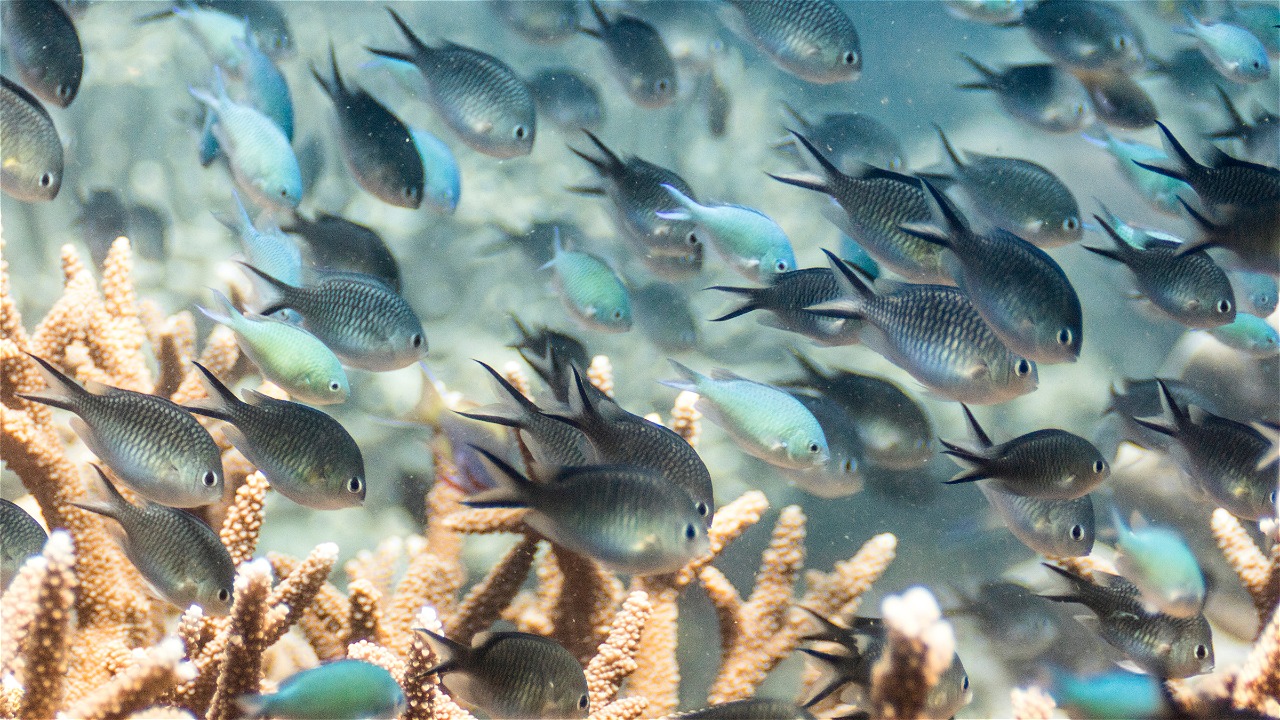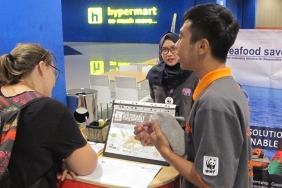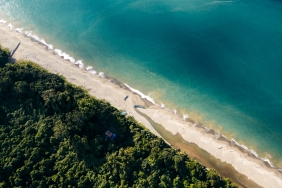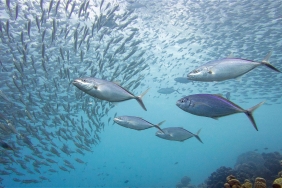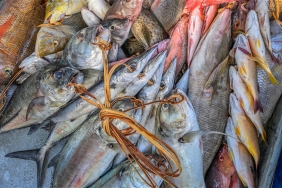SEAFOOD SAVERS SUCCESSFULLY ASSISTS LOCAL FARMERS TO MEET GLOBAL MARKET STANDARDS
Bali, May 8, 2018 - Seafood Savers, a business-to-business platform initiated by WWF-Indonesia to implement efforts to improve fisheries in Indonesia, has succeeded in encouraging improvements in the quality of Indonesian shrimp farming to penetrate the global market share after obtaining Aquaculture Stewardship Council (ASC) sustainable fisheries ecolabel certification. This achievement also proves that Indonesian aquaculture practices are able to penetrate and compete with intensive aquaculture industries in meeting sustainable certification standards recognized by the global market.
To date, Seafood Savers members consist of nine capture fisheries companies, six aquaculture companies and two buyers (wholesaler and retailer). In the 2017-2018 period, two Seafood Savers member companies from the aquaculture sector successfully obtained Aquaculture Stewardship Council (ASC) sustainable fisheries ecolabel certification; two farms under the guidance of PT Mustika Minanusa Aurora covering 115 hectares for tiger shrimp in Bulungan Regency, North Kalimantan, and 18 vanamei shrimp farms covering 9 hectares under the guidance of PT Tiwandi Sempana which is a supplier to PT Bumi Menara Internusa in Probolinggo, East Java. To date, PT Mustika Minanusa Aurora aims to produce around 20 tons of tiger shrimp per year to meet export demand to Japan, while PT Bumi Menara Internusa targets vanamei shrimp production of 300 tons per year for the United States market.
In the annual meeting of Seafood Savers in Denpasar, Bali, WWF-Indonesia Manager of Aquaculture and Fisheries Improvement Program Abdullah Habibi said "WWF-Indonesia will continue to ensure every step of improvement in the aquaculture commodities considering that the certification achieved is valid only for the commodities registered. Similarly, with the improvement of capture fisheries, we will also ensure that all Seafood Savers members make improvements that are recognized and documented in fisheryprogress.org."
For the domestic market, WWF-Indonesia and Nielsen's 2017 survey results showed that 26% of total respondents were aware of environmentally produced fishery products, but only 17% said they had consumed environmentally produced fishery products. "Market support to expand the implementation of similar practices by other businesses is one of the main goals of Seafood Savers going forward. A significant increase in consumer awareness of the consumption of environmentally friendly fishery products can encourage the readiness of the domestic market to absorb sustainably produced products," added Abdullah Habibi.
The Seafood Savers scheme also encourages the fulfillment of environmental improvement aspects through mangrove planting activities. In addition to meeting certification standards, this activity has directly contributed to the protection of critical habitats around the company's ponds. So far, the total land area as a form of compensation for the conversion of cultivated land that has been greened is 40.41 Ha, located in Aceh, Tarakan, Probolinggo and Makassar. Regarding social aspects, Seafood Savers also assists companies in the management of farm workers, mitigation while minimizing negative impacts and optimizing the positive impacts of aquaculture activities on surrounding communities.
The annual meeting of Seafood Savers is also a place to increase synergy and full commitment to sustainability, as well as introduce four new members, namely PT IAMBEU Mina Utama for farmed reef fish commodities, PT Mega Marine Pride for vannamei shrimp commodities and two buyers (wholesaler and retail) namely Natura Seafood and Fish n Blues for 15 - 17 seafood commodities.
-0-
Editor's Note:
- SEAFOOD SAVERS is a business-to-business platform initiated by WWF-Indonesia to implement efforts to improve fisheries in Indonesia that refer to MSC and ASC ecolabeling standards. For more information visit www.seafoodsavers.org.
- ASC or Aquaculture Stewardship Council is an international non-profit organization that develops third-party certification schemes for sustainable aquaculture. ASC's mission is to realize sustainable and responsible aquaculture practices. For more information visit https://www.asc-aqua.org/
- AIP or Aquaculture Improvement Program is an improvement process that an aquaculture unit goes through to meet the sustainability standards set out in ASC certification.
- The consumer perception survey was conducted by WWF and Nielsen to 916 respondents in Jakarta, Medan, Surabaya, Denpasar, and Makassar who represent middle and upper middle class consumers aged 15-45 years. The survey was conducted from June to July 2017.
For more information, please contact:
- Febrina Berlianti, Seafood Savers Officer, WWF-Indonesia
Email: fberlianti@wwf.id, Hp: +62 852-8222-0289
- Abdullah Habibi, Aquaculture & Fisheries Improvement Manager, WWF-Indonesia
Email: ahabibi@wwf.id, Hp: +62811-8114-193

